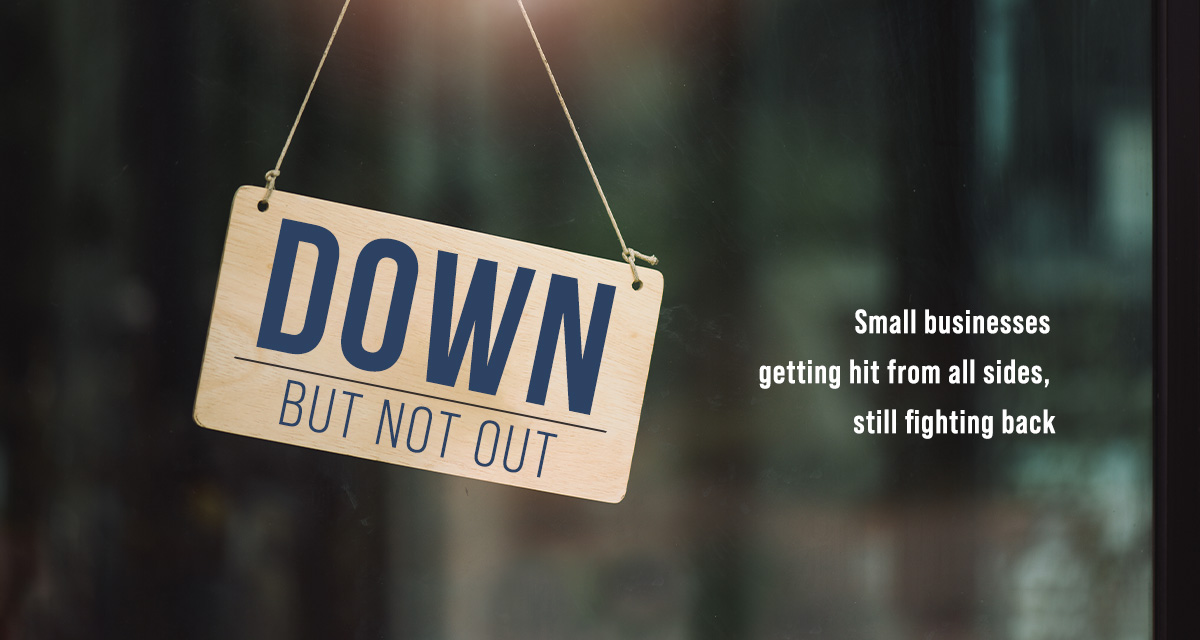While fully admitting it is a low bar to clear, Hope Hartman, Executive Director of the Small Business Development Center of Larimer County, sees hope in the economic outlook for this year.
“I do think there is more optimism now than the last few years,” she says. “Right now, I feel like they are looking OK.”
The biggest challenges are those businesses that took out Pandemic Paycheck Protection loans, Hartman says, and they now have to start paying those back.
“And has business come back enough to stay afloat? That’s the question,” she says.
Small businesses took some big blows over the last few years with the pandemic, supply chain issues and more. But Hartman got some perspective from a small business owner when she was applying for the position a year ago: “There is always some disaster. If it’s not a pandemic, it’s a flood or a fire or something.”
Greeley Chamber of Commerce President Jaime Henning says in 2023 businesses know they will have to be nimble to stay ahead of the many changes in store. “There are going to be talent acquisition and retention issues, and regulatory changes,” she says. “But this is the new normal and businesses are ready for it.”
Henning adds that some sectors saw revenue increases, and many are considering expansion.

Hope Hartman showing a business to business presentation on “What is a Formal Business Plan?” Photos courtesy of the Small Business Development Center of Larimer County.
Lauren Storeby owns Snack Attack Specialty Sandwiches and Brews in Fort Collins with her husband, Shawn. She says their business grew by 13 percent in 2022. “But we still encountered a ton of challenges, ranging from increased labor wages, crazy high food inflation expenses and disruptions in the supply change,” she says. “You name it, the price went up or we experienced some sort of shortage. The positive is that sales are up, and it’s been great having guests fill our seats.”
However, Hartman says she has also heard from retail businesses around the county that many of them are seeing fewer customers, since a lot more of the sales are happening online.
“With so many businesses having to go virtual and offer ecommerce, some business owners are saying they aren’t seeing customers back in the door and they don’t think they ever will,” she says. “Ecommerce is now the core revenue for them, but they have brick and mortar overhead.”
Eric Sudhalter and his wife, Rachel, opened Canna World Market in Loveland, selling CBD products, in 2019, with a business plan to offer personalized face-to-face wellness consulting. The pandemic, of course, changed that.
By hitting farmers markets and other unique ways to reach customers, the business was doing well, but he says July and August, which are typically great months for sales, were way down. “I think it had more to do with inflation and other things going on,” he says.
He still wants to focus on the personalized service, especially for new customers. His online store is “just another way to get to us after they have had a conversation with us about what they need.”
As for 2023, “it’s all one big mystery,” he says. “Everything keeps changing and I have no idea what normal is these days.”

Rachel Sudhalter and her husband, Eric, co-owners of Canna World Market in Loveland.
Working together
Henning says many businesses, especially in the hospitality industry, discovered during the pandemic that one of the only ways to survive was to work together. “In our industry roundtables, we are seeing businesses share programs and practices…even regionally,” she says.
Businesses are sharing resources and combining ordering to get bulk discounts from distributors, says Hartman. “In Colorado, we are fortunate because there are more collaborations here than other places,” she says. “And I do see more of those powerful collaborations forming, like the farm-to-table and more trying to manufacture here.”
Storeby agrees. “We’ve always partnered with local businesses, and this amplified over the pandemic,” she says. “I believe businesses are starting to link arms again knowing we are so much stronger together.”
Finding workers
Hartman says businesses had to change recruitment strategies because of major changes in the workforce.
“There is this attempt to target younger workers to train them to come into the workforce…younger than we typically have targeted,” she says. “Instead of college age, we are looking at high school students and how to upskill those people with internships, so they are ready to work as soon as they graduate.”
Of course, some industries suffered more than others. “The restaurant industry was hit hard in regard to the labor market,” Storeby says. “It’s always been difficult to find really good people, and the pandemic magnified it. But over the past three months or so, we’ve been able to retain a really amazing team.”

Lauren Storeby, owner of Snack Attack in Fort Collins.
Supplies still limited
Supply chain shortages were bad during the heart of the pandemic, but many continue.
“This year, the biggest one was avocados,” Storeby says. “It was painful. We actually took avocado off the menu completely because it was so overpriced, and we didn’t want to pass that onto our guests.”
Storeby said every product they purchased had a breakdown in the supply chain, from meats to produce to packaging.
“You name it and there was an issue,” she says. “Now we are used to something not coming in. It’s crazy how you can become conditioned with repetition.”
Stress!
Hartman says a lingering hangover from the pandemic has small business owners scrambling to please customers.
“Everyone is so rude now,” Hartman says she hears regularly from small business owners. “And I’m not sure what that is about. I mean everyone is exhausted. There is a real desire by businesses for us to remind people to be kind again. How do we tell people to be civil?”
Storeby says surviving as a small business during continuing tough times are the same principles that make them successful during the good days.
“Personally, I think there will be a slow down on business in 2023, but if you run your business ‘right and tight,’ you won’t feel a huge impact,” she says. “It’s all about continuing to be fluid and adapting to what the market is telling you. If you survived the pandemic, you’ll have some muscle memory to ride this slowdown as well.”
_______________________________________________
Jared Fiel is a writer in Northern Colorado.







